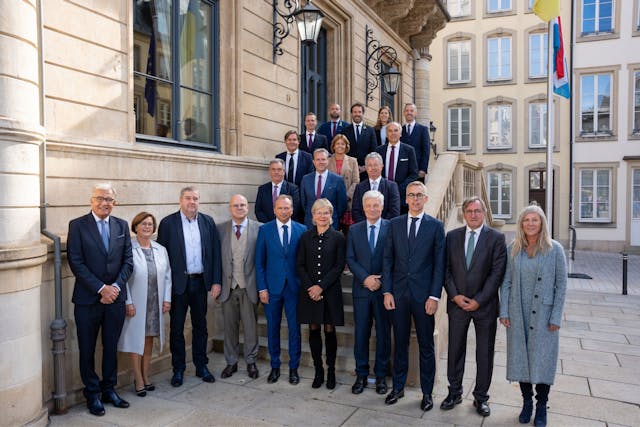Benelux and Hauts-de-France join forces: energy, mobility, education

Dorian D1, Unsplash
The signing ceremony of a new action plan between the Benelux Union and the Hauts-de-France region took place in Brussels. The agreement aims to increase cross-border co-operation and strengthen co-ordination in key areas: energy transition, transport, education and sustainable development.
On behalf of Benelux, the document was signed by Luxembourg's Deputy Prime Minister and Minister of Foreign Affairs, Xavier Bettel, in his capacity as acting Chairman of the Committee of Ministers. The event was also attended by the French Ambassador to Belgium, Xavier Lapierre de Caban, and the Vice-President of the Hauts-de-France region, François Decoster, in charge of culture and international relations.
Xavier Bettel called the move a logical continuation of Benelux's mission as the "laboratory of Europe": "The Action Plan shows how cross-border co-operation helps to find concrete solutions for citizens. Together we will achieve a faster energy transformation, better mobility and better access to education.
This agreement is not just a gesture of political will. It reflects the need to respond to localised challenges of a global nature, from the climate agenda to migration pressures and the digital divide.
While full details of the agreement have not been disclosed, it is known that the plan covers four areas:
- Energy: accelerating the transition to renewable energy and improving energy efficiency in the residential and industrial sectors;
- Mobility: improving public transport and transport links between France, Belgium, Luxembourg and the Netherlands;
- Education: creating exchange programmes, digital learning platforms and facilitating the recognition of qualifications;
- Sustainability: coordinating biodiversity conservation and waste management.
The central idea is to eliminate borders in a practical sense, so that residents and businesses can more easily tackle everyday tasks, whether it's commuting to work or accessing educational resources in a neighbouring country.
From an ordinary person's point of view, it is about creating real convenience: less bureaucracy when travelling between countries, more opportunities for study and employment, better conditions for environmental and transport infrastructure. For business, it is a chance for more flexible and understandable rules of doing business in the cross-border space.





